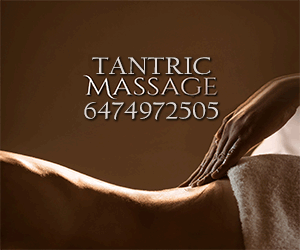
Experts say people should decide whether a massage or acupuncture treatment is essential or a luxury when deciding whether to go in. Getty Images
- Experts say it can be safe to get a massage or acupuncture treatment during COVID-19 if certain guidelines are followed.
- They urge people to check with businesses to make sure they clean tables in between visits and have sufficient air circulation in rooms.
- They also recommend that people decide if a treatment is a necessity or a luxury.
Health officials advise people to remain 6 feet apart during the COVID-19 pandemic, but for services such as massages and acupuncture, that’s difficult to do.
So, should you cancel your appointment?
Experts say the answer is complicated.
“Social or physical distancing is not really possible with massage and acupuncture. If the prevalence of COVID-19 in the local community is low and appropriate precautions are maintained, these services can be delivered relatively safely. That said, if the prevalence of COVID-19 infections is high locally, you might want to wait until the number of cases decreases,” Dr. Michelle L. Dossett, MPH, an assistant professor of general internal medicine at UC Davis Health, told Healthline.
The Centers for Disease Control and Prevention (CDC) says that SARS-CoV-2, the virus that causes COVID-19, is mainly spread from person-to-person contact. This can be among people who are in close contact and through droplets produced when someone with the virus coughs, sneezes, or speaks.
As SARS-CoV-2 is a new virus, data on its spread on surfaces is limited. But Dossett says it is feasible the virus could be spread via a massage table that hasn’t been cleaned.
“If someone who was infected with COVID-19 left respiratory droplets on the massage table an hour or two before your massage, you could theoretically catch it if the table was not cleaned in between clients,” she explained. “That said, professional societies and public health guidelines are recommending that massage therapists and acupuncturists do clean table surfaces between clients.”
Dr. Sue Kim is a medical acupuncturist at Stanford Health Care in California.
She says risks associated with receiving services such as acupuncture and massage during the pandemic could be dependent on the environment in which they are delivered.
“It just depends on what the setup is,” Kim told Healthline. “For example, if it’s a very tiny room with very poor circulation and there’s not really good airflow… and people are not wearing masks… then the risk may be higher. Especially if the patient is spending a lot of time in the room and there’s not enough time to air out the room in between.”
She says practitioners should consider offering services outside and, if this is not possible, implementing extra precautions indoors.
“If you need to do it indoors, ideally it would be a room that has windows and I would advocate in this case for keeping the windows open and perhaps having a HEPA filter. Between patients, I would let the room air out for about 15 minutes after it’s been cleaned down with medical-grade wipes,” she said.
When deciding whether to attend appointments like massage or acupuncture, the experts who spoke with Healthline say individuals must assess their own risk and benefit of attending.
If in doubt, they can ask their primary care provider for guidance.
“Persons who are seeking these services should discuss the risks and benefits with their primary care clinician and make an informed decision based on their recommendation and their communities’ individual situation,” Dr. Gary L. LeRoy, FAAFP, president of the American Academy of Family Physicians, told Healthline.
“While it is difficult to quantify the risks, anyone who has or lives with someone with a compromised immune system — for example, diabetes, asthma, COPD, or receiving chemotherapy — should avoid situations that increase their probability of exposure to COVID-19,” he said.
Dr. Timothy F. Brewer, an infectious disease expert at the University of California Los Angeles, says if in doubt, individuals should delay their appointments until the benefits outweigh the risks.
“If you are unsure if you need a massage or acupuncture treatment, it is probably better to defer getting a treatment if COVID-19 transmission is occurring in your community,” he said.
“It is a question of risk/benefit. Does the person think that the potential benefit is worth the possible risk? In general, I would recommend deferring these types of activities for now, but others might believe that the benefits are worth the possible risk,” he added.
Kim argues that for some people, massage and acupuncture appointments are an indulgence. In this case, she advises against attending appointments during the pandemic.
“If it’s just for a luxury item, if somebody doesn’t need it, it might be best to forgo them if it’s not necessary,” she said.
For patients with significant pain or medical problems, acupuncture and massage can be essential services.
“We see a lot of cancer patients who have a lot of pain and who are suffering greatly. Certain exceptions should be made, especially for palliative purposes, for serious conditions,” Kim said.
Brewer agrees that for people experiencing pain, the risk of attending appointments during a pandemic could be worth it.
“The benefit is likely to be higher for these individuals, so they may be willing to accept a higher level of risk than someone who perceives less benefit,” he said.
Dossett says there are many ways individuals can protect themselves if they feel they need to continue having acupuncture, massage, or similar services during the pandemic.
“You should wear a face covering. Make sure the therapist is wearing a face covering and requiring other clients to do the same. Consider having a massage or acupuncture session outdoors or, at the very least, in a room with open windows,” she said.
“Ask the therapist about their practices to reduce the spread of infection; how often are surfaces cleaned? If indoors, how much time elapses between different clients in the same room? For example, if a massage therapist has two rooms and alternates using them, leaving an open window to air out the room for an hour between clients, that is a lot better than having back-to-back clients in the same room with windows closed,” she added.
During a period of sustained stress for many, Kim says services like acupuncture and massage may be more important than ever.
“We have to also consider the health of people holistically. The mental health aspect has maybe affected just as many or more people than COVID itself. We have to be cognizant of that,” she said.
“There are a lot of patients that may benefit from acupuncture and massage, and it should be considered a medical modality and obviously those are allowed during this time. It can be done; we just need to be thoughtful about it,” she added.




































































































